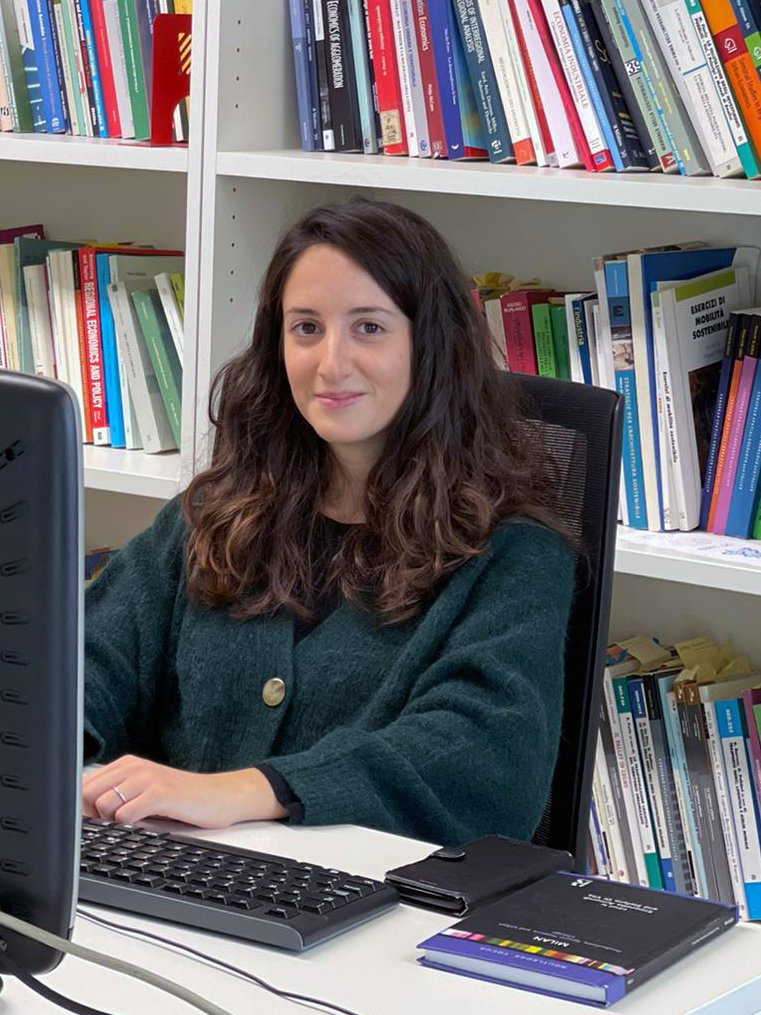
A few words with Francesca Ciccarelli
Could you introduce yourself briefly? Tell us a few things about your background, studies, and general interests.
I graduated in Political Science at the University of Naples “L’Orientale”, and a couple of years later I obtained an MRes in Sociology and Research Methods from the University of Glasgow in 2019. In the last year I worked as a trainee at the European Agency for Safety and Health at Work (EU-OSHA) before joining CORAL.
I am generally interested in the digitalisation of work and its effects on working conditions and workers’ wellbeing. In 2021, I joined the COST Action 18214 “The Geography of New Working Spaces and the Impact on the Periphery” since I am very keen on understanding whether the spread of these new workplaces in more peripheral areas may have positive effects on the wellbeing of workers (i.e. by reducing their commuting time) and of communities (i.e. by retaining young workers in peripheral areas).
How was your moving to your new home? How are things going for you in your new place?
My moving was quite smooth. Italy is my home country, so I was lucky to not have had any language and documents related problems. At the same time, Milan is fairly far away from my hometown – Caserta, in the south of Italy – and so I am still in the process of getting to know the city and what it offers.
At Politecnico di Milano, I was warmly welcomed by my supervisor and other researchers at the DAStU department, and I already feel like being part of that team. I am mostly working from home, but I am going to Politecnico one or two days per week. I initially suffered a bit from this lone working situation since I did not have the opportunity to meet the other PhD students from my department till the beginning of November. I have recently been joined by Helyaneh, ESR1 in CORAL, and I am very keen to start this PhD journey with her as well. All in all, I feel very lucky to hold this PhD position and I am happy to be always able to count on the wider CORAL network of ESRs – even if virtually – who are working on similar research topics.
You are preparing for your Work Package meeting, how is your work going?
I feel my work is proceeding quite well. I am learning loads of new things, strengthening knowledge on sociological theories of work, and discovering a lot about collaborative workspaces. At times, it is very tempting to go off-topic or fantasise about reading all books and articles ever written on the evolution of work and workspaces, but I eventually manage to keep my focus narrowed on the topic of my research project.
I drafted a list of the literature topics I should review, such as the concepts of wellbeing, economic performance, core vs. periphery, and I am constantly reviewing this list based on the readings I am doing. Therefore, it is really a process of understanding how scholars are debating certain topics and how I could contribute with my research to this ongoing discussion.
Could you share with us some key insights/ “aha moments” from your work so far?
I am enjoying a lot this learning process. I am currently in a phase where instead of finding answers, I am developing new questions, but I think this is a necessary step to be able to find relevant gaps in the literature and choose carefully which issues my research should address.
I believe a key insight from what I read till now is that I should consider in my research also issues of inclusiveness in coworking spaces, in the sense that I should not just be concerned about whether coworking spaces improve the performance and wellbeing of users, rather I should also consider the extent of this improvement. Thus, I would also like to understand whether – at least some of – these spaces may substantially improve the quality of the working life and the position in the market of individuals from a less privileged socio-economic background, rather than being limited to improving the conditions of workers who already hold a quite privileged position in the market. Another important aspect related to the above therefore consists in taking into account the diversity of collaborative workspaces to try and understand which spaces benefit which users in which areas the most.
What do you expect from the WP meeting?
I think it will surely be a great opportunity to get some updates on the work of fellow ESRs, and to think about potential synergies and collaboration opportunities among our projects. I am also hoping to receive constructive feedback from the supervisory board, the WP leader, and the other ESRs on how to improve my research and how to better focus my literature review.
Share Francesca’s journey